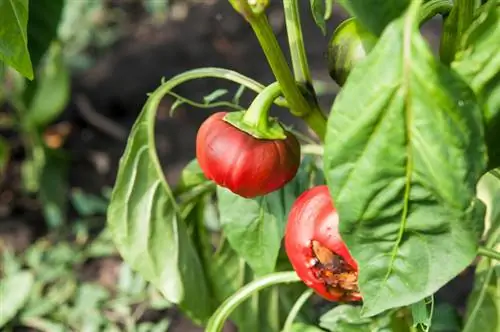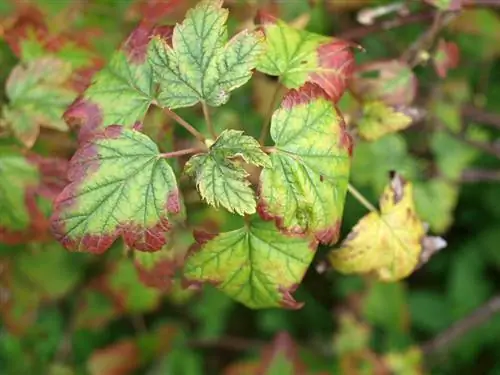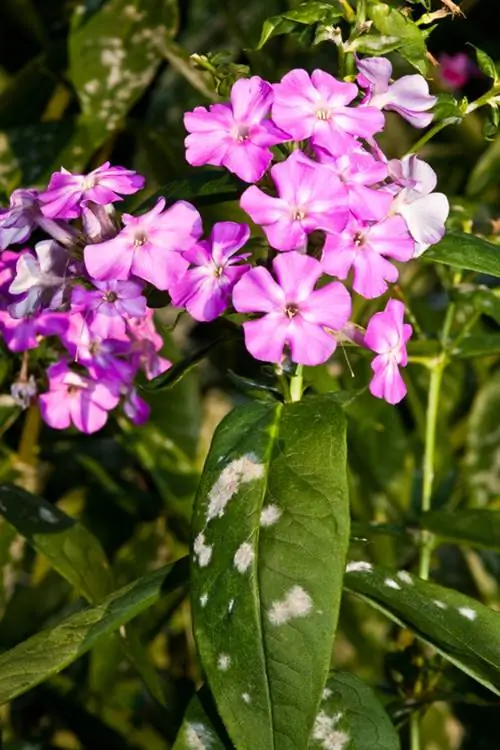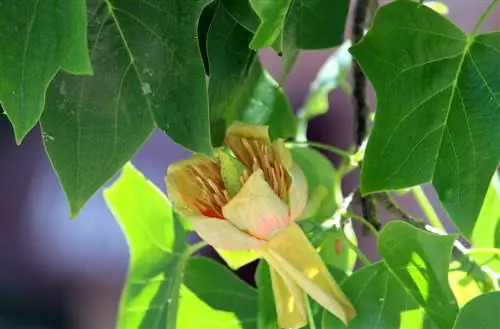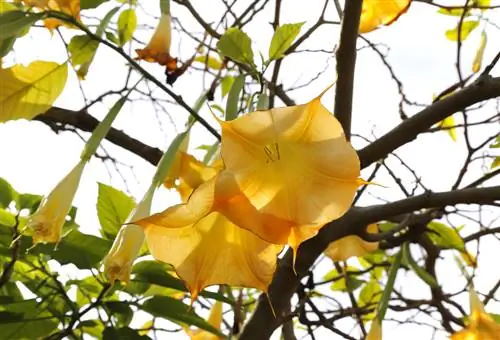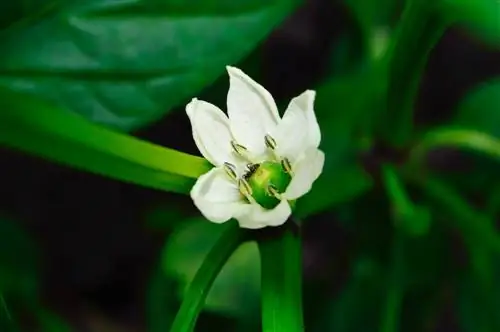- Author admin leonars@hobbygardeners.com.
- Public 2023-12-25 17:45.
- Last modified 2025-01-23 11:19.
Viruses, bacteria and fungi damage and destroy even the hottest chilies. Although they are robust and resilient. Pepper diseases often arise from incorrect care or unfavorable weather. What to do if peppers, hot peppers and chili are sick?
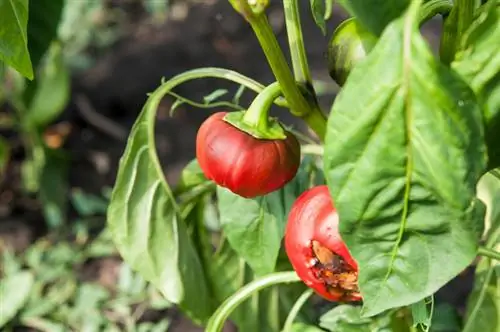
What are the causes of pepper diseases?
Pepper diseases can result from incorrect care, Fusarium wilt, Verticillium wilt, powdery mildew and downy mildew or damping-off. To counteract this, the optimal location, the right care and quick action at the first signs are crucial.
At the first signs of pepper diseases or pests, the garden owner must react quickly and take effective measures before the plants or roots die.
What makes peppers sick?
- incorrect care
- Fusarium wilt
- Verticillum wilt
- Powdery and downy mildew
- Accidental Sickness
Incorrect care makes you sick
Care errors cause most pepper diseases and can often be avoided with appropriate know-how. The optimal location for each type of pepper and proper care are the best conditions for plants and fruits to grow and thrive he althily.
Fusarium wilt
Rust-brown spots form on the leaves, initially light and later dark spots appear on the underside. The rust fungus attacks leaves and stems and the plant dies.
Verticillium wilt
Verticillium wilt is a fungal disease that occurs in the soil and attacks plants from below. New leaf shoots and leaves wilt and die.
Powdery and downy mildew
Mildew fungi attack different garden plants with similar damage patterns. They cover the entire plant with their mealy coating and penetrate through the surface of the leaves. In summer, powdery mildew develops spores that are transmitted to other plants by the wind. The fungus overwinters in small spore containers on plant remains.
In contrast to powdery mildew, downy mildew attacks the underside of the leaves via natural leaf openings. Downy mildew spreads via spores in damp weather, rain and, depending on the type of fungus, at temperatures of 10° - 18° degrees.
Accidental Sickness
Fungal pathogens attack seedlings and young plants that are planted too closely. Cool, damp climates and poor ventilation promote the disease.
Detect and treat pepper diseases early
General immediate measures: Remove affected plant parts immediately, dispose of them and replace the soil. Preventive measures: Remove affected plant parts, spray the peppers with nettle, horsetail or garlic broth or dust with stone powder. Treat soil with lime nitrogen.
Tips & Tricks
Paprika shower regularly. Especially spray the underside of the leaves thoroughly. This washes away fungi and pests before they spread.

